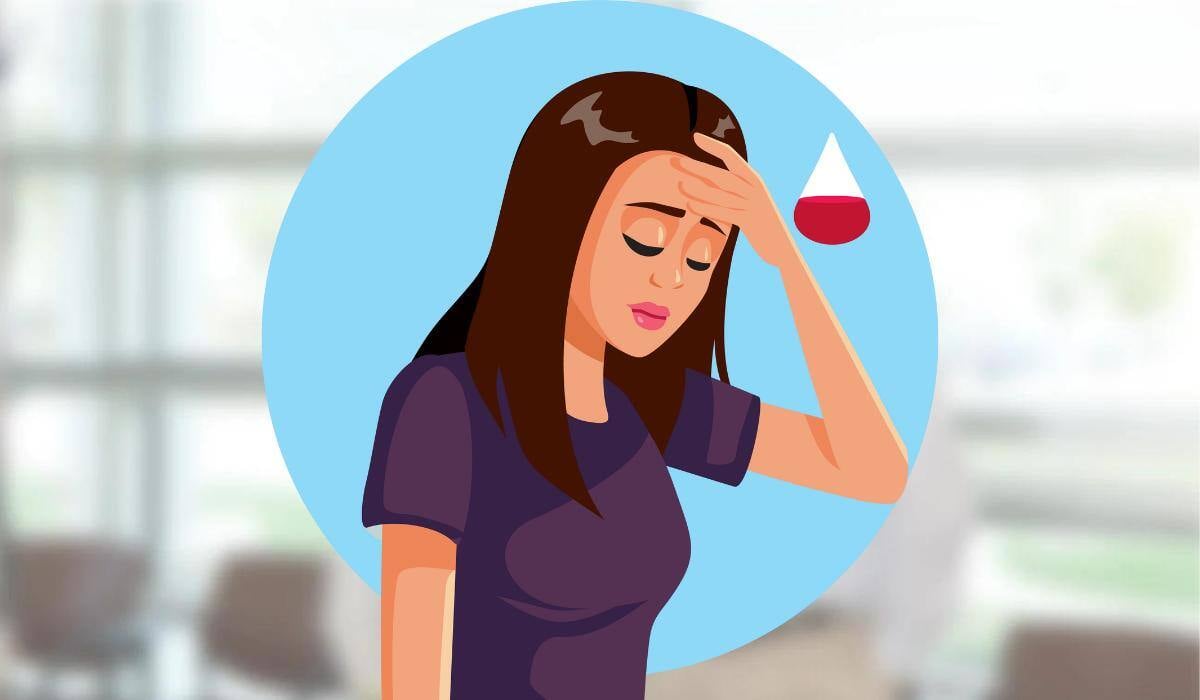
Being iron deficient means you have low iron blood studies (a test done on a blood sample). This is usually detected in blood work tests, including serum iron and ferritin. Iron deficiency can lead to a condition called anemia. This potentially life-threatening disease occurs when there are not enough red blood cells, resulting in low oxygen levels in the blood. Without sufficient oxygen in the blood, your body can’t work properly.
There are many reasons why you can be low in iron. Some of the reasons include:
- Loss of a large amount of blood
- Inability to absorb enough iron from food
- Not getting enough iron from your diet
Symptoms of Iron Deficiency
When you have iron deficiency anemia, you may or may not have any symptoms. Some symptoms you could experience include:
- Irritability
- Feeling weak or tired
- Looking “pale”
- Headaches
- Chest pain or shortness of breath
- Abnormal cravings for non-nutritious substances such as crushed ice, clay, or newspaper
- Brittle nails
- Restless leg syndrome
How is Iron Deficiency Treated?
Iron deficiency anemia is treated by giving you extra iron. Extra iron can be given in several ways, which include increased dietary iron intake, oral iron tablets, or intravenous (IV) iron. Your provider will talk with you about the best way to supplement your iron deficiency.

Increased Dietary Iron Intake
Foods high in iron include:
Grains: whole wheat bread, cereals, bagels, English or bran muffins, iron-fortified bran, and hot cereals like oatmeal, cream of wheat, or grits
Vegetables: spinach, soybeans, canned pumpkin, and pumpkin seeds
Meats and other proteins: beef, veal, lamb, pork, beef or chicken liver, clams, sardines, oysters, shrimp, tofu, baked beans with pork, lentils, tahini, tempeh, and beans such as kidney, lima, navy, or white
Moderate iron-rich foods: whole wheat pasta, chicken breast, turkey, eggs, fresh or canned tuna, dried apricots, dried figs, almonds, pistachios, cashews, walnuts, prune juice, asparagus, Brussels sprouts, mushrooms, green peas, white or sweet potatoes with the skin, garbanzo beans, collards, turnips, kale, beets, and Swiss chard

Oral Iron Tablets
Oral iron tablets may be recommended. Most oral iron is over the counter meaning you can get it at any local pharmacy. Foods rich in vitamin C increase the absorption of iron, therefore pairing foods rich in vitamin C or drinking orange juice with oral iron – dietary or tablets – will help increase its absorption.
Precautions with Oral Iron Tablets
Don’t overdo it with iron tablets. Too much iron in your body is toxic. Be sure to go for your regular blood tests to monitor your iron level. As with all of your other medications and supplements, keep your iron out of reach of children, as it can be poisonous if taken in excess.

Intravenous (IV) Iron
If you are not able to get enough iron through your diet or with oral tablets, iron can be given through an IV directly into your vein. Your healthcare provider will prescribe this if necessary and discuss it with you in greater detail.
A 30-Day Trial of Oral Iron is Typically Required Before IV Iron
Please keep in mind that some insurance companies require documentation of at least a 30-day trial of oral iron and its failure. This requires documentation of a start time and compliance with the treatment. Complaints of constipation or other side effects are not enough. They will require proof of laxatives and other iron preparations before approving intravenous iron.
What Happens if an Iron-Rich Diet and Supplements Don’t Work?
Be sure you go to your follow-up appointments to discuss any challenges you may be having with iron supplements. It’s a good idea to bring a food journal so you can discuss what you’ve been eating. The doctor may recommend foods you can try if you haven’t already.
If you take iron tablets or an IV supplement, and your red blood cells are not staying in the normal range, another condition could be the root cause. For these patients, a hematologist will be recommended. Hematologists care for patients with all types of blood disorders – cancerous and non-cancerous. They will review what you’ve done so far and work on a plan to identify the cause and treatment options.
The hematologists at Virginia Oncology Associates are available throughout Hampton Roads including Chesapeake, Hampton, Newport News, Norfolk, Suffolk (Obici and Harbour View), Virginia Beach, and Williamsburg. We also have a location in Elizabeth City, North Carolina.




